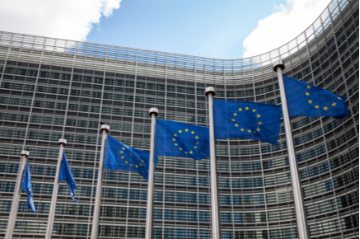
Women are increasingly moving from the side table to the negotiation table in global governance processes. Yet, barring notable exceptions, international politics remains a “man’s world.”
At a panel discussion on “Women in the New World Order”, the extent of women’s underrepresentation in political leadership is demonstrated by the fact that although, statistically, the percentage of women in parliaments has nearly doubled in the last 20 years, only 22.8 percent of all national parliamentarians were women as of June 2016, a slow increase from 11.3 percent in 1995. As of January 2017, 10 women were serving as heads of state and nine as heads of government.
The traditional western view of international relations — heavily focused on high politics of war and realpolitik — has continued to emanate from men’s experiences. Existing literature and common perception continue to associate power, security and war with masculinity. The consequent absence of women’s voices contributes to the exclusion of experiences of half of the world’s population, and leads to an in-built self-selection mechanism that favours men in the world of foreign policy and in the academic field of international relations.
In the words of philosopher and activist Simone de Beauvoir, “Representation of the world, like the world itself, is the work of men; they describe it from their own point of view, which they confuse with absolute truth.” Thus, the continued exclusion of female actors and women’s experiences in global politics radically alters the field itself.
Further, studies indicate that this selection process impacts the nature of politics itself. For instance, in a 2013 article titled “Sex and World Politics,” authors found there exists a strong correlation between gender inequality and levels of conflict, and although the nature of this relationship fuels violence and instability, the reverse is true as well. While in some cases, women attempt to further their strategic interests during times of conflict, this is usually followed by the reconstruction of more unequal gender roles afterwards.
Speaking at Raisina Dialogue 2017, Admiral Michelle Howard contextualised underrepresentation and meritocracy in the armed forces and pointed out that calls for increasing women’s presence in international security are often treated as tokenism. Women’s biological weakness is touted as one of the reasons for keeping them out. Strongly disagreeing with the view that the presence of female soldiers dampens team spirit in combat situations because male soldiers feel protective towards them, Admiral Howard said gender distinctions disappear in combat as female soldiers, having made the cut to serve, are just as meritorious and driven as their male counterparts.
In the last few years, particularly since the global financial crisis, efficacy and legitimacy of the current international order has been questioned. At present, the world is going through a geopolitical and geoeconomic transition. Emerging economies have increasingly raised concerns about being led by incumbent actors and outdated institutions. Indeed, exceptional women leaders have made a dent in the international sphere.
While women leaders are typically expected to work harder and take implicit and explicit sexism in their stride, they also have to make deliberate efforts to refrain from playing the “gender card.” — Smriti Irani, Minister of Textiles, India
Seconding the point, Indian Union Minister Smriti Irani highlighted that critical portfolios such as trade and external affairs are headed by women ministers in India. Germany’s Angela Merkel and Britain’s Theresa May are leaders of two of the world’s biggest economies. However, Irani also underlined that the interplay between gender and meritocracy remains complex in politics and governance. While women leaders are typically expected to work harder and take implicit and explicit sexism in their stride, they also have to make deliberate efforts to refrain from playing the “gender card.”
Though there is recognition and global consensus that new actors and voices need to be included in multilateral forums, this conversation does not adequately address the persistent gender gap in multilateral forums. BRICS and G20 suffer from an obvious lack of equal female leadership as well as gender-inclusive agenda. Despite BRICS’s repeated commitments to promote women in key positions, the New Development Bank (NDB) leadership is exclusively male-dominated. The board of governors, board of directors and senior management do not include a single woman. Similarly, not even one-third of the G20 leadership or nominated Sherpas are women.
Since the future of technology, financial and trade regimes must be scripted by forums like these, women’s unequal participation and persisting gender gaps are likely to deepen existing inequalities.
The emergence of new multilateral institutions was intended to reshape the distribution of global power. However, on a fundamental level, they have not been successful in dismantling the internal power structures that drive gender inequality and hinder societal progress. Without this, new multilateral institutions and instruments are likely to replicate the existing unequal and hierarchical world order. For the realisation of a new world order, women must play an equal and active role in framing ethical imperatives and defining prosperity, responsibility and accountability in international politics for global common futures. Moving forward, the push to update conceptions of diversity and inclusivity in global leadership must be amplified.
The views expressed above belong to the author(s). ORF research and analyses now available on Telegram! Click here to access our curated content — blogs, longforms and interviews.




 PREV
PREV

